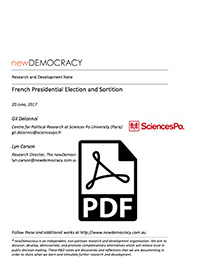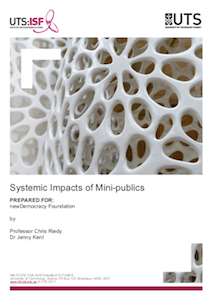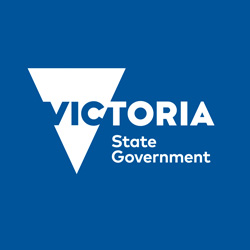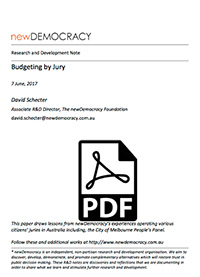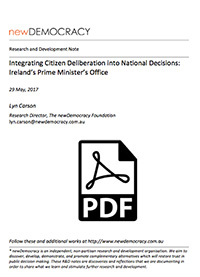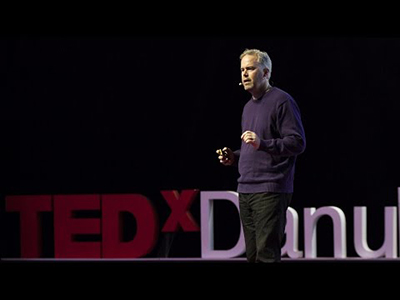Gil Delannoi – Centre for Political Research at Sciences Po University (Paris)Lyn Carson – Research Director, the newDemocracy Foundation Presidential campaign Something rather unusual happened in France during the campaign for president in 2017. Although the world watched with interest as Emmanuel Macron and Martine Le Pen competed in the second round of presidential elections, some fascinating...Continue reading
Library
Systemic Impacts of Mini-publics
Professor Chris Riedy Dr Jenny Kent Institute for Sustainable Futures, UTS You can read the full report here. Introduction A mini-public is a democratic innovation that brings together a small, representative group of citizens to deliberate and advise on a decision, or sometimes make a decision. Members of mini- publics are often randomly selected from...Continue reading
Media Release: Giving Geelong the council it wants and deserves
Geelong will have the council structure it wants with the passage of City of Greater Geelong Amendment Bill 2017. The Legislative Council passed the Bill last night, bringing about the new structure for the City of Greater Geelong following the Council’s dismissal in April 2016. In an Australian first, the Geelong Citizen’s Jury process put...Continue reading
“There’s no foreseeable opportunity for this”: Jay declares nuke dump “dead”
Premier Jay Weatherill has officially walked away from one of the major policy hallmarks of his term in Government, pronouncing the nuclear waste dump “dead” and vowing he will not revisit it if he wins another term in office. The position appears a significant rhetorical shift from his stance last November, when he pledged to...Continue reading
Budgeting By Jury
David Schecter – Associate R&D Director, The newDemocracy Foundation What is the question? Budgeting is hard. Governments are faced with expanding demands for services and needs for infrastructure, combined with insufficient ability to raise revenue. Elected representatives face intense and conflicting pressures from interest groups. Public opinion, as evidenced through the media, is likely to be...Continue reading
newDemocracy Foundation R&D: May 2017 Research Newsletter
Welcome to our new research newsletter. The newDemocracy Foundation takes research seriously. We have funded independent research projects for many years (and reports from these projects can be found on our website), but have recently decided to take an even more proactive and direct approach. Our focus will now be to commission specific research, rather than...Continue reading
Integrating Citizen Deliberation into National Decisions: Ireland’s Prime Minister’s Office (Updated)
Lyn Carson – Research Director, The newDemocracy Foundation What is the question? How could a prime minister’s office build trust in order to make the most contentious national decisions, and does the recent experience in Ireland help to answer this? Why answer this question? There is increasing world-wide distrust in politicians and elections. Democracy was borne...Continue reading
Brett Hennig TEDx Talk
In his talk Brett Hennig presents a compelling, coherent case of fixing broken democracy by replacing elected politicans with ordinary people. Sounds crazy? You’ll be suprised to hear, it actually works.Dr Brett Hennig (taxi driver, software engineer, social justice activist, mathematics tutor, PhD in astrophysics) is a director and co-founder of the Sortition Foundation whose...Continue reading
Citizens’ Assembly abortion voting more nuanced than it first appeared
Justice Mary Laffoy and the Citizens’ Assembly have done the State some service in terms of determining future approaches in law on abortion – and their deliberations must be listened to and acted upon. The Assembly voted to repeal Article 40.3.3 and proposed that a new constitutional provision be inserted granting the Oireachtas exclusive power...
Coalition frantically selling the budget but voters stay switched off
There’s an asterisk on a lot of political analysis, a rider at the end of deliberations about the impact of this or that event: “So long as the voters haven’t stopped listening.” When Malcolm Turnbull pulled off a budget policy flip that would have made Nadia Comăneci proud, we all pondered whether he had outmanoeuvred...Continue reading

